St Albans firearms collector case evidence blown up without record – BBC News
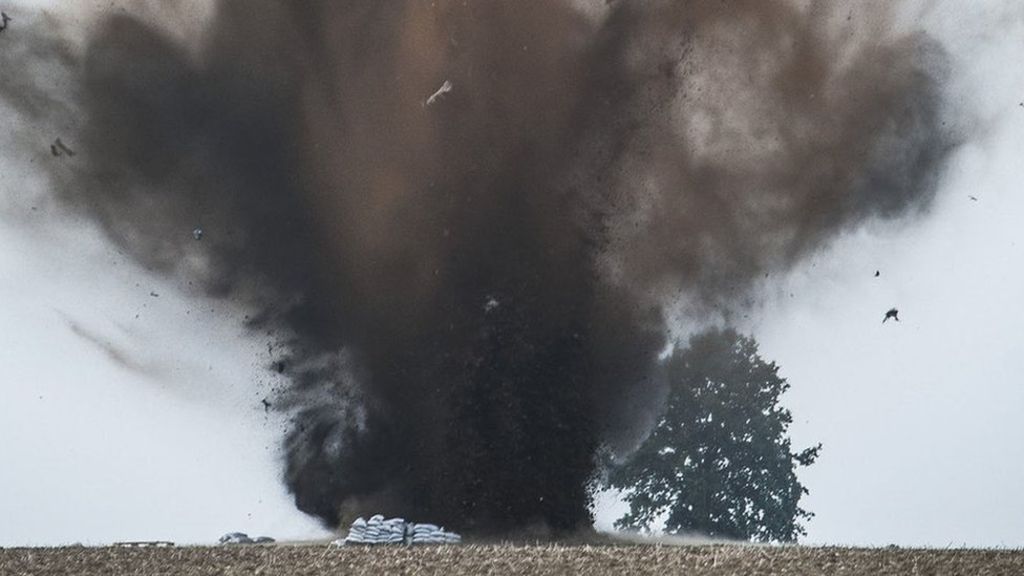
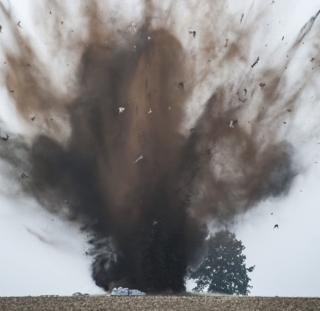 Image copyright South Beds News Agency
Image copyright South Beds News Agency A man convicted of offences over historical weaponry could have faced more charges if evidence had not been blown up without records being made.
Alan Tissington admitted six offences after police seized World War One and Two weapons from his St Albans home.
But, the Crown Prosecution Service (CPS) said it could not offer evidence on six further charges.
Police confirmed “detailed” records were not taken before the Army blew up the “very dangerous” artefacts.
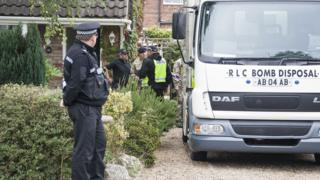 Image copyright South Beds News Agency
Image copyright South Beds News Agency A response to a freedom of information request to Hertfordshire Police revealed: “A comprehensive list of items destroyed by the Army bomb disposal unit was not taken.
“At the time, it was deemed that the safety of all personnel involved at the scene far outweighed the necessity of making detailed listings.”
Det Insp Pete Frost said: “The munitions discovered that day were determined to be potentially very dangerous by Army Explosive Ordnance Disposal experts, who recommended that they were immediately destroyed.”
‘No evidence’
Tissington, 50, had converted the garage of his Windmill Avenue home into a “museum” that displayed bombs, hand grenades, artillery shells and bullets, gas masks, rifles, military uniforms and flags.
The police raided the house on 17 September 2014, bomb disposal teams were called to the property and artefacts were later destroyed in a nearby farmer’s field.
In September, Tissington pleaded guilty to three charges of possessing ammunition without a certificate and three of possessing prohibited ammunition and was given a 12-month community order.
But, the CPS confirmed it had to “offer no evidence” on six counts out of a total of 17, because there was “insufficient evidence to provide a realistic prospect of conviction”.
Five other counts would lie on file, the court decided.
During Tissington’s trial at St Albans Crown Court, prosecutor John Upton said: “It is a matter of regret that the record of what was destroyed was not adequate to allow the Crown to proceed on a number of counts.”
Judge Jonathan Carroll said: “Public safety should come first, but the police should have had some sort of procedure so proper charging decisions could be made.”
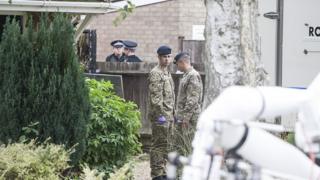 Image copyright South Beds News Agency
Image copyright South Beds News Agency 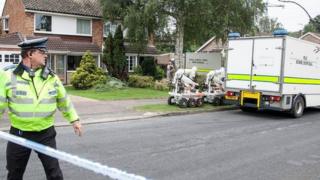 Image copyright South Beds News Agency
Image copyright South Beds News Agency 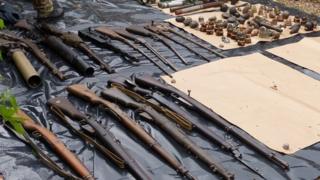 Image copyright Hertfordshire Police
Image copyright Hertfordshire Police Read more: http://www.bbc.co.uk/news/uk-england-beds-bucks-herts-37439184